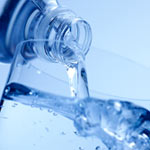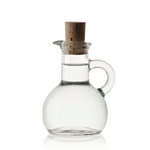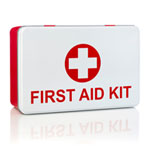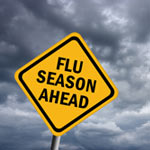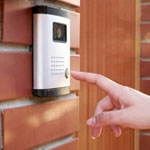Hazards in the Kitchen: What You Do Every Day that Puts You at Risk for a Serious Accident

Hazards in the Kitchen: What You Do Every Day that Puts You at Risk for a Serious Accident
Perhaps the place most of us feel the safest is in our own homes. The warm and cozy familiarity gives us a sense of security, as it should...but many everyday dangers lurk inside the comfort of home that everyone needs to be aware of to help minimize the potential of damage to our homes and, more importantly, unintentional injury to ourselves and our families. After all, accidents are sudden and unexpected, and they can cause tremendous emotional and financial grief for family members.
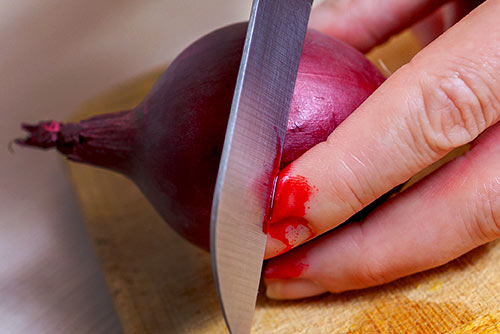
The room that has some of the most dangers is one that we tend to spend a lot of time in—the kitchen. Of course there are plenty of obvious precautions to take. Fires and burns can happen without proper use and maintenance of stovetops, ovens, toasters, fryers, griddles, waffle irons, and other cooking devices. We’ve all been told to turn pan handles inward while cooking, use appropriate oven gloves, and to keep children away from dangerous heat and install child safety equipment if children are in the home.
But there are some other, less obvious tips everyone should be aware of. For example, safewise.com suggests unplugging small appliances when they’re not in use, latching the dishwasher door, using back burners on the stove, and adding stove knob covers to help minimize fires and burns1.
Some other tips are offered by mnn.com, such as:
- Keep pets off countertops to prevent them from knocking things onto cooking surfaces
- Be careful with hot foods in a blender as they have a tendency to explode
- Wipe up spills on the floor as they happen to avoid slipping and falling
- Avoid packing cupboards, pantries, and refrigerators too full so you’re not subject to an avalanche of food or dishes
- Always thoroughly cook and store your food to avoid food-borne illness2
Chowhound.com recommends you pay special attention to safety when it comes to keeping a clean range hood and filter to avoid a grease fire. It also recommends being aware of potential radon gas, carbon monoxide, and mold in your home, making sure you have a fire extinguisher in or near your kitchen, and suggests microwaving sponges for about one minute in the microwave to sterilize them and prevent the spread of bacteria (but be sure they’re wet when you microwave them; a dry sponge in a microwave could catch fire)3.
For more information about kitchen and food safety, you can visit cdc.gov, usda.gov, and usfa.fema.gov.
Don’t let a good meal end in disaster! Always use safe practices for you and your family, and make sure you teach your children to do the same.
Sources:
You might also be interested in...
-
 10 Signs You May Not Be Drinking Enough Water
10 Signs You May Not Be Drinking Enough Water
-
 8 Signs You May Not Be Getting Enough Magnesium
8 Signs You May Not Be Getting Enough Magnesium
-
 About Life Insurance
About Life Insurance
-
 Do You Really Need Life Insurance?
Do You Really Need Life Insurance?
-
 Does Divorce Spell The End Of A Happy Childhood
Does Divorce Spell The End Of A Happy Childhood
-
 Globe Life is Rated A (Excellent)
Globe Life is Rated A (Excellent)
-
 Health Symptoms You Should Never Ignore
Health Symptoms You Should Never Ignore
-
 History of Life Insurance
History of Life Insurance
-
 Home Cough Remedies
Home Cough Remedies
-
 How High Should Your SPF Be
How High Should Your SPF Be
-
 How To Be Responsible About Life Insurance
How To Be Responsible About Life Insurance
-
 Is Eating Organic Really Safer?
Is Eating Organic Really Safer?
-
 Is White Vinegar A Safe Cleaning Agent?
Is White Vinegar A Safe Cleaning Agent?
-
 Planning Your Family For An Emergency Evacuation
Planning Your Family For An Emergency Evacuation
-
 The Difference Between Power Of Attorney And A Living Will
The Difference Between Power Of Attorney And A Living Will
-
 Reconsider Getting a Life Insurance Policy
Reconsider Getting a Life Insurance Policy
-
 Setting Goals For Your Employees
Setting Goals For Your Employees
-
 Skills that Make Bosses Want to Hire You
Skills that Make Bosses Want to Hire You
-
 The Importance of Life Insurance
The Importance of Life Insurance
-
 The Importance of Term Life Insurance
The Importance of Term Life Insurance
-
 Is It Time To Review Your Life Insurance Policy?
Is It Time To Review Your Life Insurance Policy?
-
 Tips On How To Prevent E.coli
Tips On How To Prevent E.coli
-
 Too Busy to Stay Healthy?
Too Busy to Stay Healthy?
-
 What Is COPD And How You Can Prevent It?
What Is COPD And How You Can Prevent It?
-
 What is Term Life Insurance?
What is Term Life Insurance?
-
 When Insurance Becomes an Investment
When Insurance Becomes an Investment
-
 Choosing Whole Life Vs Term Life Insurance
Choosing Whole Life Vs Term Life Insurance
-
 Why You Should Look Into Term Life Insurance
Why You Should Look Into Term Life Insurance
-
 Making Your Home Senior-Friendly
Making Your Home Senior-Friendly
-
 Is Whooping Cough Making A Comeback
Is Whooping Cough Making A Comeback
-
 Unusual Tricks To Reduce The Risk Of Heart Disease
Unusual Tricks To Reduce The Risk Of Heart Disease
-
 The Best First Aid Kit Everyone Should Have
The Best First Aid Kit Everyone Should Have
-
 Beware Of Dangerous Mold
Beware Of Dangerous Mold
-
 5 Things You Should Know About Thyroid Health
5 Things You Should Know About Thyroid Health
-
 What Your Eyes Reveal About Your Health
What Your Eyes Reveal About Your Health
-
 Everyday Things That Can Cause Memory Loss
Everyday Things That Can Cause Memory Loss
-
 How To Discuss Life Insurance With Your Spouse
How To Discuss Life Insurance With Your Spouse
-
 Why That Cold Won’t Go Away
Why That Cold Won’t Go Away
-
 5 Ways To Keep A Healthy Smile
5 Ways To Keep A Healthy Smile
-
 How Dangerous Is Sugar?
How Dangerous Is Sugar?
-
 5 Warning Signs To Change Healthcare Providers
5 Warning Signs To Change Healthcare Providers
-
 Simple Secrets To Conquer Flu Season
Simple Secrets To Conquer Flu Season
-
 The Hidden Bad Side Of Everyday Foods
The Hidden Bad Side Of Everyday Foods
-
 How To Avoid The Scams That Tricked So Many
How To Avoid The Scams That Tricked So Many
-
 Six Foods That May Reduce Stroke Risk
Six Foods That May Reduce Stroke Risk
-
 Empty Nesters: Don’t Ditch Life Insurance Until You Consider This
Empty Nesters: Don’t Ditch Life Insurance Until You Consider This
-
 How Does Accidental Death Insurance Work?
How Does Accidental Death Insurance Work?
-
 4 Tips To Improve Your Credit Score
4 Tips To Improve Your Credit Score
-
 6 Tech Devices You Need For Family Safety
6 Tech Devices You Need For Family Safety
-
 Public Transportation Safety Tips
Public Transportation Safety Tips
-
 Is Globe Life Insurance Reliable?
Is Globe Life Insurance Reliable?
-
 Hazards in the Kitchen: What You Do Every Day that Puts You at Risk for a Serious Accident
Hazards in the Kitchen: What You Do Every Day that Puts You at Risk for a Serious Accident
-
 Surviving a Snake Bite
Surviving a Snake Bite
-
 Is Globe Life Insurance Term or Whole Life?
Is Globe Life Insurance Term or Whole Life?
-
 The Top 4 Leading Causes of Death for People Older Than 50 and How to Avoid Them
The Top 4 Leading Causes of Death for People Older Than 50 and How to Avoid Them
-
 Nine Eye-Opening Stats That Will Make You Rethink Texting and Driving
Nine Eye-Opening Stats That Will Make You Rethink Texting and Driving
-
 Risks of Dying from Cancer
Risks of Dying from Cancer
-
 What are the Odds of Dying While Taking a Selfie?
What are the Odds of Dying While Taking a Selfie?
-
 Can I Get an Accidental Death Quote Online?
Can I Get an Accidental Death Quote Online?
-
 Buying Life Insurance for the Whole Family
Buying Life Insurance for the Whole Family
-
 What You Need to Know Before Buying Term Life Insurance
What You Need to Know Before Buying Term Life Insurance
-
 Advantages and Disadvantages of Getting Life Insurance without a Medical Exam
Advantages and Disadvantages of Getting Life Insurance without a Medical Exam
-
 A New Year's Resolution You Can Keep: Buy Life Insurance
A New Year's Resolution You Can Keep: Buy Life Insurance
-
 Food Contamination: Ways to Avoid the Potential Dangers and Keep Food Safe
Food Contamination: Ways to Avoid the Potential Dangers and Keep Food Safe
-
 Can I Increase the Face Value of My Term Life Insurance?
Can I Increase the Face Value of My Term Life Insurance?
-
 What is Mortgage Protection Insurance?
What is Mortgage Protection Insurance?
-
 Do I need Accidental Death Insurance?
Do I need Accidental Death Insurance?
-
 How Does a Graded Death Benefit Whole Life Insurance Policy Work?
How Does a Graded Death Benefit Whole Life Insurance Policy Work?

 Insurance products are available in New York from
Insurance products are available in New York from  Insurance products are available in your state from
Insurance products are available in your state from 





